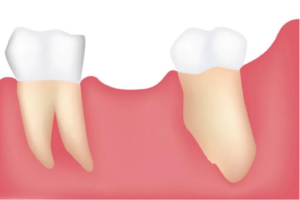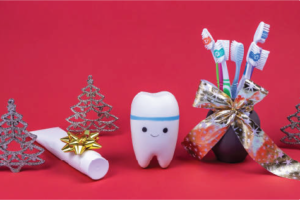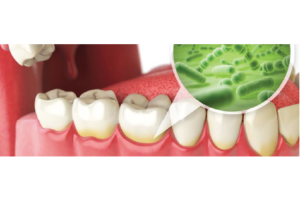Can medications affect your oral health?

Prescription and over-the-counter (OTC) medicines are intended to heal us when we’re sick, relieve our pain, and avoid or monitor long-term adverse medical conditions. But sometimes they have unwanted side effects. Some of the medications including those for chronic conditions can hurt your oral health. It’s important to be aware of these side-effects so that necessary precautions and preventive measures can be adopted. Sharing your medication history with your dental team will help them in diagnosis as well as make important alterations in your treatment planning. Here are a few oral side effects of medications:
Dry mouth:
Some medications can reduce the amount of saliva in your mouth, causing an uncomfortable dry mouth (xerostomia). The tissues in the mouth may become irritated and inflamed, without enough saliva. It also increases the risk of gum disease, tooth decay, and infection. Drinking water or sugar-free drinks often and chewing sugar-free gum to stimulate saliva will help to keep the oral cavity moist.
Abnormal bleeding:
Reduced clotting of the blood is a side effect of many anticoagulants, popularly known as blood thinners, including aspirin. However, when patients on these medicines are treated for gum diseases or undergo extractions and oral surgery, they are at risk of bleeding problems. Be sure to let your dentist know you are taking these medications so that care can be taken to minimize bleeding.
Enlarged gums:
Enlarged gums, also known as gingival overgrowth, can occur when you take some antiseizure drugs, hypertension medications, or immunosuppressive agents. Your risk also increases if you have existing dental plaque. The incidence can be minimized especially if a patient practices proper oral hygiene.
Altered taste:
Some drugs may leave a bitter or metallic taste in the mouth or may impair taste sensations. These drugs include cardiovascular agents, central nervous system stimulants, anti-inflammatory drugs, respiratory inhalants, and medicines for the cessation of smoking. If this side effect is unbearable, consult with your physician to see if any alternative medicines can be given.
Soft tissue reactions:
Patients can develop inflammation, mouth ulcers, and soft tissue discolouration when taking some prescribed medicines such as oral contraceptives, immune-suppressive drugs, anti-hypertensives, and chemotherapeutic agents. Patients can talk to their dentist who can prescribe a regimen to help relieve the pain and discomfort.
Fungal infection:
Oral candidiasis or thrush is a fungal infection and appears as white lesions in the mouth. Thrush can be caused by taking some antibiotics, steroids, or chemotherapy medicines. It can also be induced by some inhaler drugs used in asthma patients. To treat the infection your dentist may prescribe an antifungal mouthwash or lozenges. Rinsing your mouth with water after using an inhaler will help avoid this problem.
Tooth discoloration:
The use of certain antibiotics during pregnancy can result in brownish-discoloration of teeth in children. It is important to inform your healthcare team if you’re pregnant.
Tips to maintain oral health while taking these medications:
– Brush and floss daily and follow a proper oral hygiene regimen.
– Ask your doctor or pharmacist about potential side effects when you are prescribed a new medicine.
– Carry an updated list of your medications to notify your dentist during your appointments.
– Visit your dentist regularly to detect any dental problems due to medications.
– Drink an adequate amount of water daily and restrict the intake of sugary and acidic foods and beverages.
To conclude, these are just a few examples of how medications can affect your oral health. It’s important to understand and take additional measures to prevent or reduce the negative impact.
What are your choices for replacing Missing Teeth
What are your choices for replacing missing teeth? Loss of...
Read MoreDental care during Covid-19 outbreak
DENTAL CARE DURING COVID-19 OUTBREAK Right now, all of us...
Read MoreDental care tips for the festive season!
Dental care tips for the festive season! It’s the beginning...
Read MoreDoes acid reflux from the stomach damage your teeth
Does acid reflux from the stomach damage your teeth? It’s...
Read More
Dr. Paresh Lotlekar is a leading dental practitioner specialising in Periodontology & Oral implantology and the founder of STUDIO32 (studio32india.com), a chain of super speciality dental clinics in Goa.





